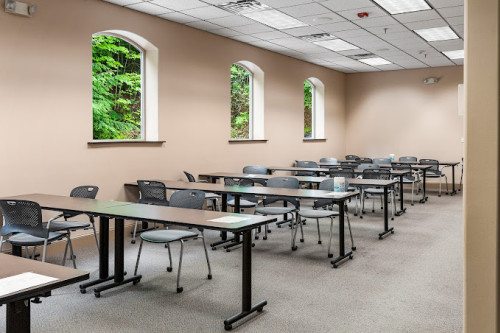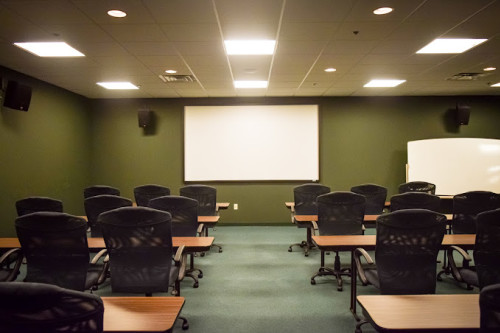






Sobriety Centers of New Hampshire - Lakes Outpatient
Treatment Focus
This center treats substance use disorders and co-occurring mental health conditions. Your treatment plan addresses each condition at once with personalized, compassionate care for comprehensive healing.
Primary Level of Care
Outpatient treatment offers flexible therapeutic and medical care without the need to stay overnight in a hospital or inpatient facility. Some centers off intensive outpatient program (IOP), which falls between inpatient care and traditional outpatient service.
Claimed
Recovery.com has connected directly with this treatment provider to validate the information in their profile.
Treatment Focus
This center treats substance use disorders and co-occurring mental health conditions. Your treatment plan addresses each condition at once with personalized, compassionate care for comprehensive healing.
Primary Level of Care
Outpatient treatment offers flexible therapeutic and medical care without the need to stay overnight in a hospital or inpatient facility. Some centers off intensive outpatient program (IOP), which falls between inpatient care and traditional outpatient service.
Provider's Policy
We accept most major health insurance plans, and offer complimentary insurance verification.
Sobriety Centers of New Hampshire - Lakes Outpatient
Sobriety Centers of New Hampshire - Lakes Outpatient
About Sobriety Centers of New Hampshire - Lakes Outpatient
Sobriety Centers of New Hampshire offers a comprehensive continuum of addiction treatment with detox, residential, and outpatient programs for adults ages 18 years and older. Their Lakes Addiction Treatment Center location provides flexible outpatient care with varying levels of intensity, offering clinical services and individualized master treatment plans developed by licensed and credentialed addiction specialists.
Full Continuum of Care
Their personally tailored care uses a holistic approach involving a blend of 1-on-1 counseling, group and family therapy, medication monitoring, life skills, didactic presentations, 12 Step or SMART recovery workshops, and more. In addition to their nearby detox and residential program called Antrim House, Lakes provides a partial hospitalization program (PHP), intensive outpatient program (IOP), and traditional outpatient (OP) consisting of ongoing 1:1 therapy sessions.
PHP meets for 5 hours per day, up to 7 days per week depending on individualized treatment plans. PHP allows clients to access a level of care that is similar to their inpatient program while also allowing the flexibility to remain living at home. Clients can use PHP as a step-down from residential care, or as an initial entry point into treatment depending on their specific needs. Partial hospitalization at Sobriety Centers involves regular drug screening, 1-on-1, group, and family therapy, medical care assistance including medication management and medication-assisted treatment (MAT), job training programs through an employers assistance program, and more.
IOP is the next step in their full continuum of care, consisting of 12 hours per week of group therapy in addition to weekly 1-on-1 therapy sessions. IOP assists clients in reconnecting with their families and communities while enabling them to continue with their normal day-to-day lives. Intensive outpatient provides support mechanisms, relapse prevention and management strategies, psychoeducation, peer support, and coping and life skills development.
Personalized Approach
Clients at Lakes are given thorough assessments and participate in developing personalized treatment plans. Their programs incorporate a blend of evidence-based methods such as different types of cognitive behavioral therapy (CBT). Additionally, their overall approach is holistic, offering healing activities such as yoga and meditation. The programs at Sobriety Centers also address the underlying causes of addiction, with care for co-occurring mental health disorders such as anxiety, depression, trauma, and PTSD.
Robust Aftercare
Sobriety Centers of New Hampshire offers extensive aftercare services for all of their clients. Aftercare may include ongoing group therapy, community resources, vocational or housing assistance, medication management, support meetings, continuing care, self-help groups, relapse prevention, outpatient treatment, and more.
As the first treatment center in New Hampshire to incorporate a trauma-informed approach, Sobriety Centers aims to provide compassionate care focused on treating the root causes of substance abuse and addictive behaviors.
Veterans
Sobriety Centers of New Hampshire offers a specialized treatment track with a program for veterans who are struggling with substance misuse and mental health. Their premium services are ideal for retired and active duty military, with highly trained addiction specialists ensuring each veteran receives the support and care necessary to meet their unique needs. Sobriety Centers presents veterans with a variety of treatment options, including detox, residential, and differing levels of outpatient dual-diagnosis care.

Center Overview
Treatment Focus
This center treats substance use disorders and co-occurring mental health conditions. Your treatment plan addresses each condition at once with personalized, compassionate care for comprehensive healing.
Insurance Accepted
Cash Pay Rates
Estimated Cash Pay Rate
Center pricing can vary based on program and length of stay. Contact the center for more information. Recovery.com strives for price transparency so you can make an informed decision.
Levels of Care








Your Care Options
Specializations
Opioids
Opioids produce pain-relief and euphoria, which can lead to addiction. This class of drugs includes prescribed medication and the illegal drug heroin.
Medication-Assisted Treatment
Combined with behavioral therapy, prescribed medications can enhance treatment by relieving withdrawal symptoms and focus patients on their recovery.
Who We Treat
Men and Women
Men and women attend treatment for addiction in a co-ed setting, going to therapy groups together to share experiences, struggles, and successes.
Approaches
Personalized Treatment
The specific needs, histories, and conditions of individual patients receive personalized, highly relevant care throughout their recovery journey.
Twelve Step
Incorporating spirituality, community, and responsibility, 12-Step philosophies prioritize the guidance of a Higher Power and a continuation of 12-Step practices.
Evidence-Based
A combination of scientifically rooted therapies and treatments make up evidence-based care, defined by their measured and proven results.
Therapies
Stress Management
Patients learn specific stress management techniques, like breathing exercises and how to safely anticipate triggers.
1-on-1 Counseling
Patient and therapist meet 1-on-1 to work through difficult emotions and behavioral challenges in a personal, private setting.
Family Therapy
Family therapy addresses group dynamics within a family system, with a focus on improving communication and interrupting unhealthy relationship patterns.
Twelve Step Facilitation
12-Step groups offer a framework for addiction recovery. Members commit to a higher power, recognize their issues, and support each other in the healing process.
Trauma-Specific Therapy
This form of talk therapy addresses any childhood trauma at the root of a patient's current diagnosis.
Nutrition Counseling
Nutritious food helps patients heal from within, setting them up for mental and bodily wellness as they learn about healthy eating.
Conditions We Treat
Post Traumatic Stress Disorder
PTSD is a long-term mental health issue caused by a disturbing event or events. Symptoms include anxiety, dissociation, flashbacks, and intrusive thoughts.
Anxiety
Anxiety is a common mental health condition that can include excessive worry, panic attacks, physical tension, and increased blood pressure.
Depression
Symptoms of depression may include fatigue, a sense of numbness, and loss of interest in activities. This condition can range from mild to severe.
Trauma
Some traumatic events are so disturbing that they cause long-term mental health problems. Those ongoing issues can also be referred to as "trauma."
Substances We Treat
Cocaine
Cocaine is a stimulant with euphoric effects. Agitation, muscle ticks, psychosis, and heart issues are common symptoms of cocaine abuse.
Prescription Drugs
It's possible to abuse any drug, even prescribed ones. If you crave a medication, or regularly take it more than directed, you may have an addiction.
Benzodiazepines
Benzodiazepines are prescribed to treat anxiety and sleep issues. They are highly habit forming, and their abuse can cause mood changes and poor judgement.
Co-Occurring Disorders
A person with multiple mental health diagnoses, such as addiction and depression, has co-occurring disorders also called dual diagnosis.
Psychedelics
Hallucinogenic drugs—like LSD—cause euphoria and increased sensory experiences. When abused, they can lead to depression and psychosis.
Drug Addiction
Drug addiction is the excessive and repetitive use of substances, despite harmful consequences to a person's life, health, and relationships.
Heroin
Heroin is a highly addictive and illegal opioid. It can cause insomnia, collapsed veins, heart issues, and additional mental health issues.
Synthetic Drugs
Synthetic drugs are made in a lab, unlike plant-based drugs like mushrooms. Most synthetic drugs are either stimulants or synthetic cannabinoids.
Methamphetamine
Methamphetamine, or meth, increases energy, agitation, and paranoia. Long-term use can result in severe physical and mental health issues.





